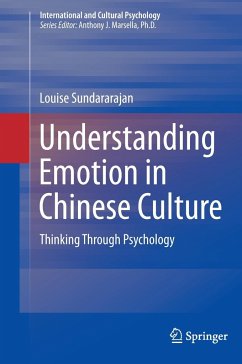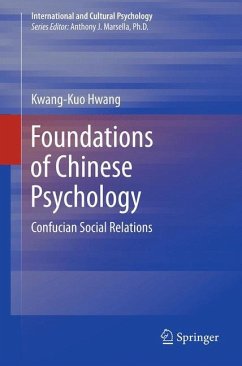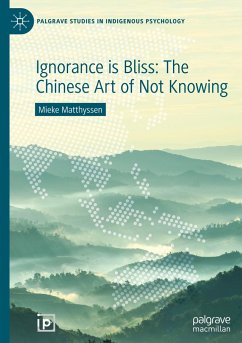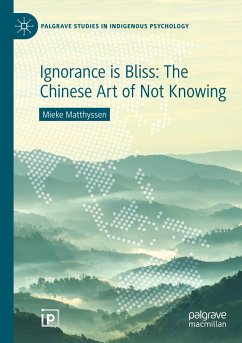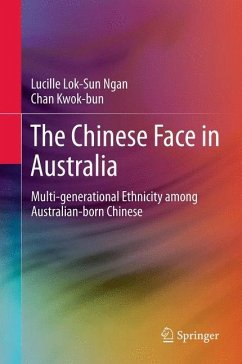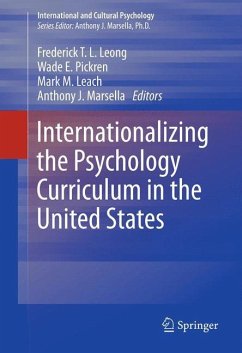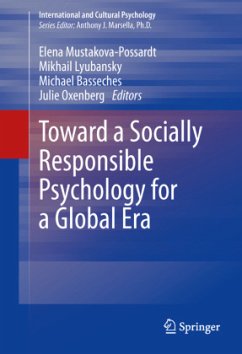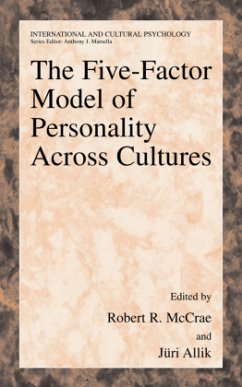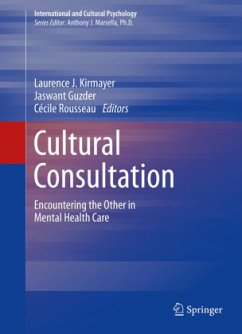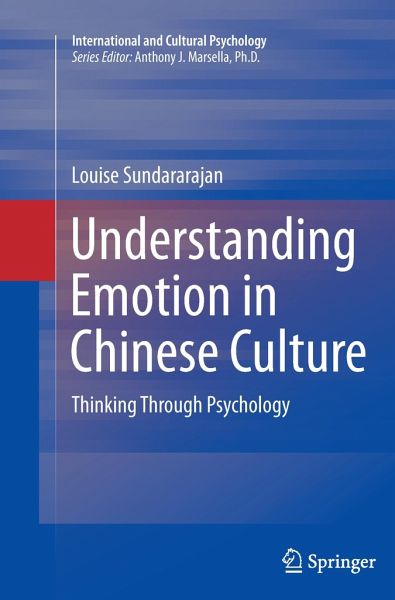
Understanding Emotion in Chinese Culture
Thinking Through Psychology
Versandkostenfrei!
Versandfertig in 6-10 Tagen
65,99 €
inkl. MwSt.
Weitere Ausgaben:

PAYBACK Punkte
33 °P sammeln!
This mind-opening take on indigenous psychology presents a multi-level analysis of culture to frame the differences between Chinese and Western cognitive and emotive styles. Eastern and Western cultures are seen here as mirror images in terms of rationality, relational thinking, and symmetry or harmony. Examples from the philosophical texts of Confucianism, Daoism, Buddhism, and classical poetry illustrate constructs of shading and nuancing emotions in contrast to discrete emotions and emotion regulation commonly associated with traditional psychology. The resulting text offers readers bold ne...
This mind-opening take on indigenous psychology presents a multi-level analysis of culture to frame the differences between Chinese and Western cognitive and emotive styles. Eastern and Western cultures are seen here as mirror images in terms of rationality, relational thinking, and symmetry or harmony. Examples from the philosophical texts of Confucianism, Daoism, Buddhism, and classical poetry illustrate constructs of shading and nuancing emotions in contrast to discrete emotions and emotion regulation commonly associated with traditional psychology. The resulting text offers readers bold new understandings of emotion-based states both familiar (intimacy, solitude) and unfamiliar (resonance, being spoiled rotten), as well as larger concepts of freedom, creativity, and love.
Included among the topics:
The mirror universes of East and West.In the crucible of Confucianism.Freedom and emotion: Daoist recipes for authenticity and creativity. Chinese creativity, with special focus on solitude and its seekers.Savoring, from aesthetics to the everyday.What is an emotion? Answers from a wild garden of knowledge.
Understanding Emotion in Chinese Culture has a wealth of research and study potential for undergraduate and graduate courses in affective science, cognitive psychology, cultural and cross- cultural psychology, indigenous psychology, multicultural studies, Asian psychology, theoretical and philosophical psychology, anthropology, sociology, international psychology, and regional studies.
Included among the topics:
The mirror universes of East and West.In the crucible of Confucianism.Freedom and emotion: Daoist recipes for authenticity and creativity. Chinese creativity, with special focus on solitude and its seekers.Savoring, from aesthetics to the everyday.What is an emotion? Answers from a wild garden of knowledge.
Understanding Emotion in Chinese Culture has a wealth of research and study potential for undergraduate and graduate courses in affective science, cognitive psychology, cultural and cross- cultural psychology, indigenous psychology, multicultural studies, Asian psychology, theoretical and philosophical psychology, anthropology, sociology, international psychology, and regional studies.




